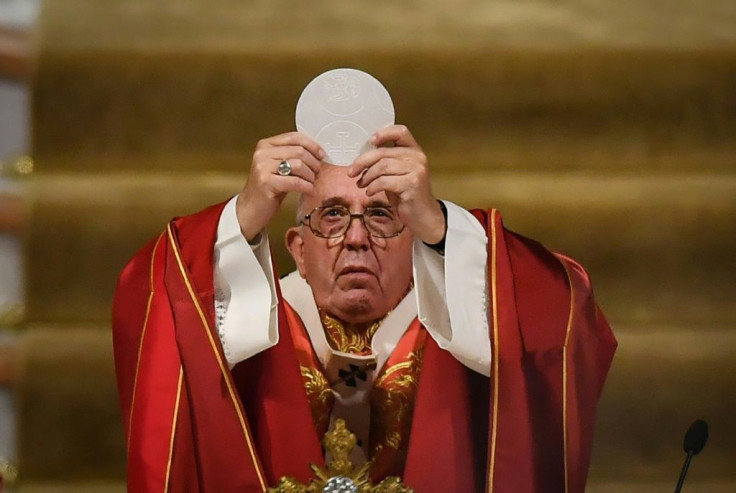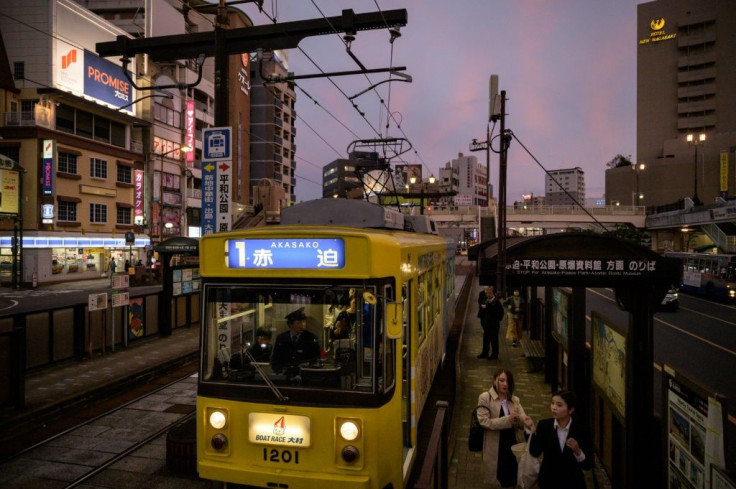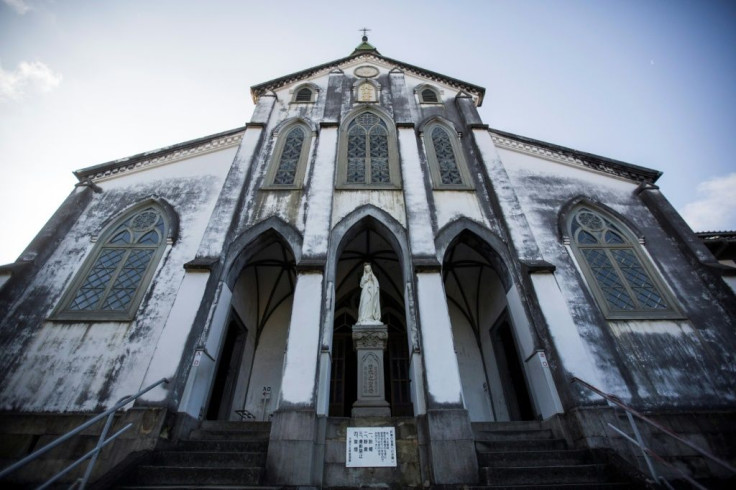Pope Francis Kicks Off Japan Trip With Call For Nuclear Disarmament

Pope Francis on Saturday issued a call for nuclear disarmament as he arrived on a long-awaited trip to Japan, which will take in visits to the cities of Hiroshima and Nagasaki, targets of the "catastrophic" atomic bomb.
Shortly after touching down in Japan, the 82-year-old Argentine turned straight to the "tragic episode in human history" at the end of World War II, which killed at least 74,000 in Nagasaki and 140,000 in Hiroshima.
"I will soon visit Nagasaki and Hiroshima, where I will offer prayers for the victims of the catastrophic bombing of these two cities, and echo your own prophetic calls for nuclear disarmament," Francis told bishops in a welcoming ceremony.
With his four-day trip -- the second leg of an Asian tour that also included Thailand -- the pontiff said he was fulfilling a long-held ambition to preach in Japan.
"I don't know if you are aware of this, but ever since I was young I have felt a fondness and affection for these lands. Many years have passed since that missionary impulse, whose realisation has been long in coming," said Francis.
The head of the world's 1.3 billion Catholics arrived late Saturday in Tokyo, with the white cape of his papal outfit whipped up by high winds as he gingerly descended the plane steps in heavy rain.
The first leg of his trip took him to Thailand, where he delivered a message of religious tolerance and peace.
He is expected to do the same in Japan, a country with only approximately 440,000 Catholics out of a population of 126 million.

The majority of Japanese practise a mixture of Shinto and Buddhism, two closely intertwined faiths based on the worship of nature and spirits, but many in Japan also observe Christian festivals such as Christmas.
"We know that the Church in Japan is small and Catholics are in a minority, but this must not diminish your commitment to evangelisation," he told his bishops.

Christians endured centuries of bloody repression in Japan after the religion was introduced to the country by a Spanish Jesuit priest in 1549.
In the 17th century, Japan was closed to the outside world and Christians were persecuted, tortured, crucified and drowned as they were forced to recant their faith.
When Japan reopened to the world in the mid-19th century and the missionaries returned, they were astonished to find an estimated 60,000 who had secretly kept the faith alive and followed a unique version of Catholicism blended with Japanese culture and religious rites.
The pontiff will pay tribute to the community while in Nagasaki and also visit Hiroshima to deliver remarks at the world-famous peace memorial that marks the day on August 6, 1945 when the atomic bomb was dropped.
Father Yoshio Kajiyama, director of the Jesuit social centre in Tokyo, was born in Hiroshima shortly after the war and is eagerly awaiting the pope's anti-nuclear speech.
"My grandfather died the day of the bomb in Hiroshima, I never knew him. Four days later my aunt died when she was 15 years old," said the 64-year-old.
"If you grow up in Hiroshima, you can't forget the bomb."
In Tokyo on Monday, Francis will meet government officials, Emperor Naruhito and victims of the "triple disaster" -- the earthquake, tsunami and nuclear meltdown in 2011 that devastated large swathes of north-eastern Japan.
"Evil has no preferences; it does not care about people's background or identity. It simply bursts in with its destructive force," said Francis.
He spent three nights in Buddhist-majority Thailand, where he met with Thai King Vajiralongkorn and also sat down with the Buddhist Supreme Patriarch -- the head of Thailand's Buddhists -- readily taking off his shoes during the visit to adhere to local customs.
His cousin Sister Ana Rosa, who has worked as a missionary in Thailand since 1966, was a near constant presence by his side during the visit, serving as his interpreter.
In his final public address in Bangkok, the pontiff expressed gratitude to the small Catholic community for the warm welcome he received.
"I am leaving you with a task: do not forget to pray for me!"
© Copyright AFP 2024. All rights reserved.











